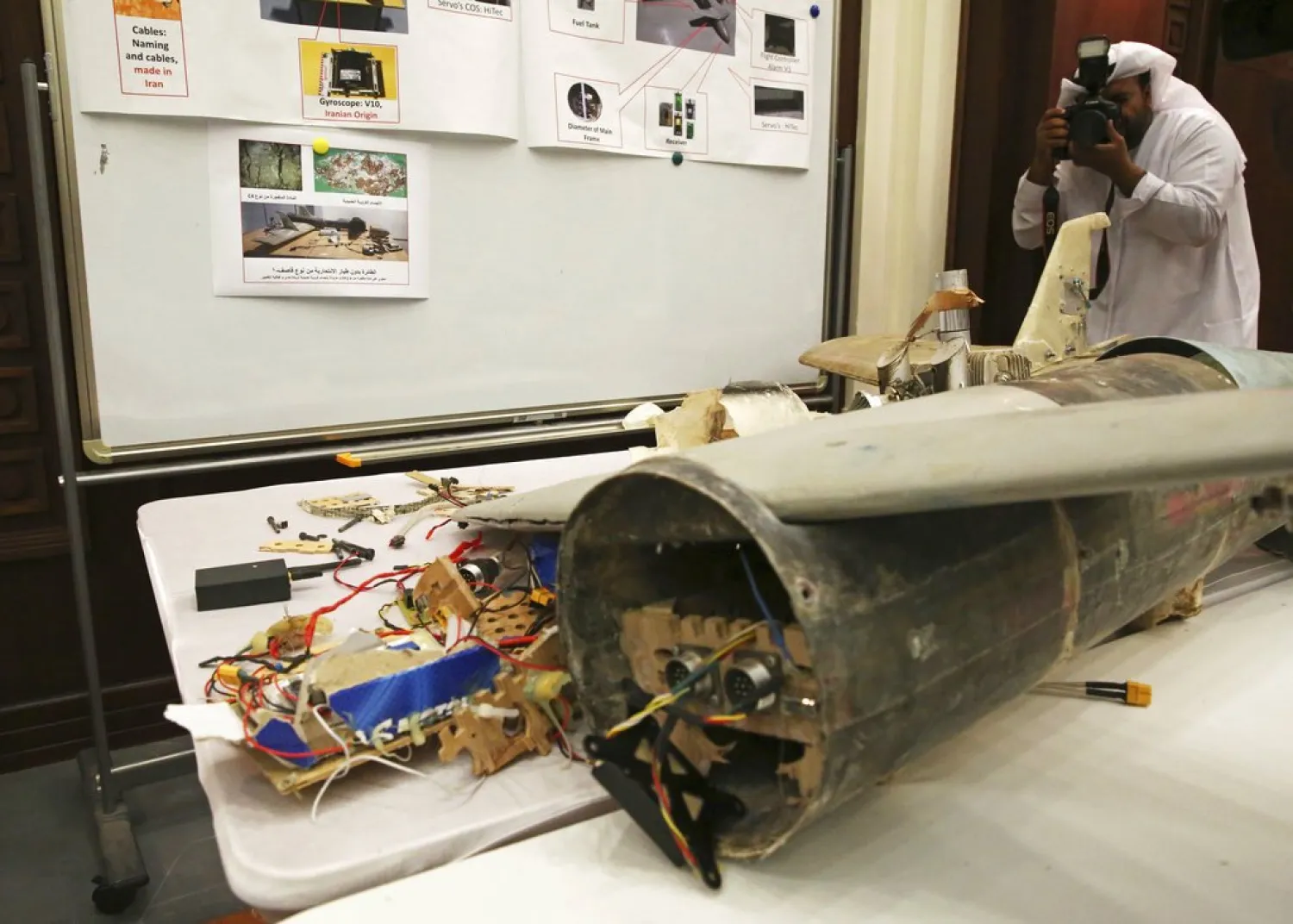The United Arab Emirates’ Ministry of Foreign Affairs and International Cooperation and armed forces uncovered on Tuesday weapons and military gear that proves Iran’s involvement in supporting the Houthi militias in Yemen.
The weapons were captured by Saudi-led Arab coalition forces in Yemen.
Weapons shown to reporters in Abu Dhabi and later at an Emirati military base on a government-sponsored tour included drones, a sniper rifle, roadside bombs disguised as rocks and even a "drone boat," which had been filled with explosives that failed to detonate.
The officials showed Iranian-labeled components inside of equipment used to produce and load fuel for the rockets the Houthis have fired across the border at Saudi Arabia.
"Unsurprisingly, there are advanced military components in the Houthi militia's hands," Talal al-Teneiji, an Emirati Foreign Affairs Ministry official, told The Associated Press.
"We took time to inspect and disassemble these to figure out the source ... and we can say that these elements are military-grade materials imported from Iran to the Houthi militias."
Some of the weapons shown have previously been described by UN weapons experts and an independent group called Conflict Armament Research, which gained access to the materiel through the UAE's elite Presidential Guard.
Among them were roadside bombs disguised as rocks that bear similarities to others used by “Hezbollah” in southern Lebanon and by other Iran-backed fighters in Iraq and Bahrain, suggesting an Iranian influence in their manufacture.
Already, the Arab coalition has disarmed between 20,000 to 30,000 land mines and bombs, most laid indiscriminately by the Houthis, al-Teneiji said.
Other weapons on display Tuesday included a .50-caliber sniper rifle and mines.
Officials also displayed a series of drones that showed a growing sophistication by the militias, starting first with plastic foam models that could be built by hobby kit to one captured in April that closely resembled an Iranian-made drone.
Iran has been accused by the US and the UN of supplying ballistic missile technology to the Houthis.
At a military base, the officials showed "dual-use" equipment that they believe was used to fuel Badr rockets, gear which they seized from smugglers in Yemen's central Marib governorate.
Inside one piece of equipment a component bore the name of Shokouh Electric, an Iranian firm. Another piece of the equipment bore the Farsi name and address of Mashal Kaveh, another Iranian company.
The officials also shared black-and-white images from the "drone boat" that failed to explode. The pictures and associated data from the boat's computer showed Iranians building components for the boat's guidance system in eastern Tehran, with a hat in the background of one picture bearing the symbol of Iran's Revolutionary Guard.









